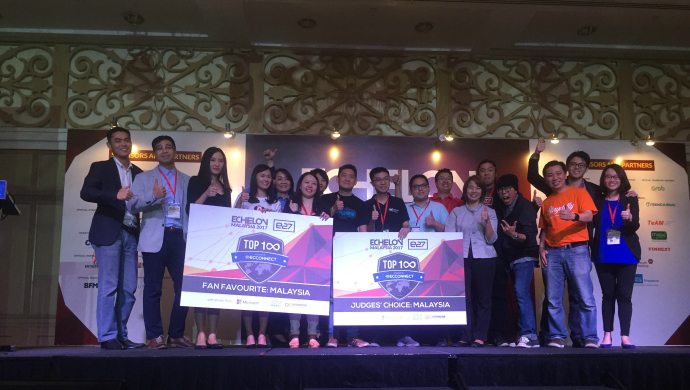Month: April 2017
Buruda Concert creates an Airbnb for matching musicians with concert venues
Buruda Concert, a Korean concert planning platform officially opened its beta service on Monday, allowing musicians to book a venue and time to hold their own concerts. The website functions very much like the accommodation website Airbnb, but is designed for live music.
That is, musicians interested in performing can simply visit the site and select available options of time and venue. This provides convenience for musicians to hold their own concerts wherever and whenever.
Besides, the platform is also opened to music lovers, exposing them to be exposed to a variety of concerts. Music fans can simply purchase Buruda Tickets, that is presales tickets which will fund the concerts.
There is a gap in the live music industry between local undiscovered musicians and the demand for live music from private hosts and other venues.
Buruda Concert simplifies the whole process, providing a benefit to both musicians who are in need of a decent and economical place to hold a concert as well as event locations which are in needs of clients.
Buruda Concert currently has a fanbase of 10,000 music fans and 457 scheduled concerts to date, with performances by famous South Korean boy band Bulletproof Boy Scouts (BTS) and upcoming talents like Choi Hyo-in and Yozo.
“By lifting the burdens of the administrative complexities for the artists through already having the available venues and times as options, the website made it easier for the artists and the fans as well,” said a spokesperson from Buruda Concert.
By Vivian Foo, Unicorn Media
Doki Doki begins beta testing for Ball, its newest voice-centric social networking app
Doki Doki, a Japanese startup led by serial entrepreneur Takahiro Iguchi has recently initiated a closed beta testing for its communication and networking app known as Ball. The software will be tested by 100 people whom identities were not revealed.
The app is inspired by the startup’s first product Baby, a social app which allows users to record and share 5-second voice messages which are made accessible to other Baby users near the location. Depending on how the user sound or what messages they chose to convey, other users can decide if they want to connect, by flicking left or right in a Tinder-like fashion.
If users’ intentions match, they can become friends and are allowed to have a private voice chat instead of chatting via the public parade chat. Messages will also automatically disappear within 24 hours so that conversation with new acquaintances or old friends can remain discreet.
Baby was launched in November last year and is only downloadable from the United States iTunes App Store.
Its new application Ball, however, extends its voice-centric feature to create the world’s first voice social network. The service allows its users to talk as much as desired, whenever they want and wherever they want within a time range of 5 seconds.
“In the new version of Baby, we will move further away from the encounter of voice to focus on the continuous process of daily chatter. The aim is to create an environment that is more suitable for voice messaging,” said Takahito Iguchi on the stage at FabCafe MTRL.
To create that, the app functions by connecting users who are interested in similar topics together. For example, if one person made a comment about the new “iPhone 8”, he or she will be linked to those who are talking about the same topic from across the world.
Iguchi describes the experience that Ball offers as a cafe-like space.
Doki Doki, Inc. is founded in June 2014 to develop a platform where people can instantaneously understand each other. Takahito Iguchi, the serial entrepreneur behind Doki Doki became popular at TechCrunch 40 following the disrupt with Sekai Camera – an augmented reality app which proved to be a world-class hit.
The company has already raised funds of about US$1.1 million from investors including Skyland Ventures, CyberAgent Ventures, and Umeda Startup Fund. Earlier in February this year, the startup has also raised 50 million yen (about US$460K) from the Kyoto University Innovation Capital (Kyoto iCAP).
By Vivian Foo, Unicorn Media
Poladrone and EasyLaw takes top two awards at Echelon Malaysia Pitching Showcase
The two-day tech conference Echelon Malaysia 2017 in Georgetown, Penang is finally over.
The digital platform, which was localised for the Malaysian market has managed to attract an attendance of more than 300 startups, in addition to industry veterans from the travel tech, creative content, hardware and industrial Internet of Things (IoT) to share their insights.
Another highlight in the Echelon Malaysia was the Top 100 Fight Club competition, a live startup pitching competition where the best startups pitch on the main stage in front of a judging panel made up from investors.
The judges for the competition were the Senior Executive Director of Vertex – Carmen Yuen, senior technical evangelist of Microsoft – Aswin C, the general and founding partner of KK Fund – Koichi Saito, a partner at Golden Gate Ventures – Michael Lints, and the vice president for Gobi VC – Victor Chua.
Poladrone and EasyLaw won the two top prizes, beating other participating startups which includes digital comparison platform Boleh Compare, Hotwire clone Staydilly, and Smartpeep, a startup which provides an outdoor intrusion solution.
Poladrone won the Judges Choice Award, having provided proprietary solutions for farmers to gather agricultural information while EasyLaw, a startup that helps people find fast, affordable, legal advice took home the Fan Favorite award, being the most voted in the Facebook poll.
The teams are also awarded with prizes which includes passes to Echelon Asia summit in Singapore, US$10,000 worth of Microsoft Azure credits as well as MYR3,000 (about US$600) in cash for each startup.
By Vivian Foo, Unicorn Media
Chinese employee training platform YunXueTang secures US$22 million round led by SIG
YunXueTang, an employee training platform announced on Tuesday that it had raised US$22 million in a series B funding led by venture capital firm SIG, with participation from Chinese investor Li Qi.
This follows the startup’s previous funding round in 2014 from China’s Everest Venture which was worth RMB 80 million (about US$11 million).
YunXueTang is a learning management system (LMS) for employees.
The platform provides a range of services from exams to learning materials for medium and large size companies, including fields from real estate, banking, insurance, and retail.
Its products also include a learning platform for companies to create their own teaching materials, in addition to a video conferencing mobile app.
The company was founded in December 2011 by Lu Ruize, operating on a BaaS (Business-as-a-Service) model which places emphasis on content and consulting services for enterprises.
At present, the company has over 1 200 lecturers providing more than 2 000 courses for over 300 000 companies. Its customers include China Mobile Ltd, Lenovo Group Ltd., and traditional Chinese pharmaceutical company TongRenTang.
The company also claims to have recorded a revenue of RMB 100 million (about US$14 million) last year.
“Currently, a dozen of European and U.S. employee training companies have issued IPOs,” said Guo Lu, a partner at SIG. “In Europe and US, the industry is well-developed and highly penetrated, but in China, despite a 15 percent annual growth rate, the industry still focuses on providing offline services while online services are in the early stage.”
The reason for this investment, Guo Lu further adds is that YunXueTang presents the opportunity to integrate online and offline resources.
It operates on a forward-looking mindset, market accumulation, as well as an elite team which makes him believes that the company has what it takes to make it in the subversive training industry.
Meanwhile, the startup plans to use the fresh capital to improve the platform’s content, enhance consultancy services and build a sales team.
“The next step for YunXueTang is to compile its own accumulated data, and to develop in the direction of high-quality knowledge content providers,” said Lu Ruize.
By Vivian Foo, Unicorn Media




